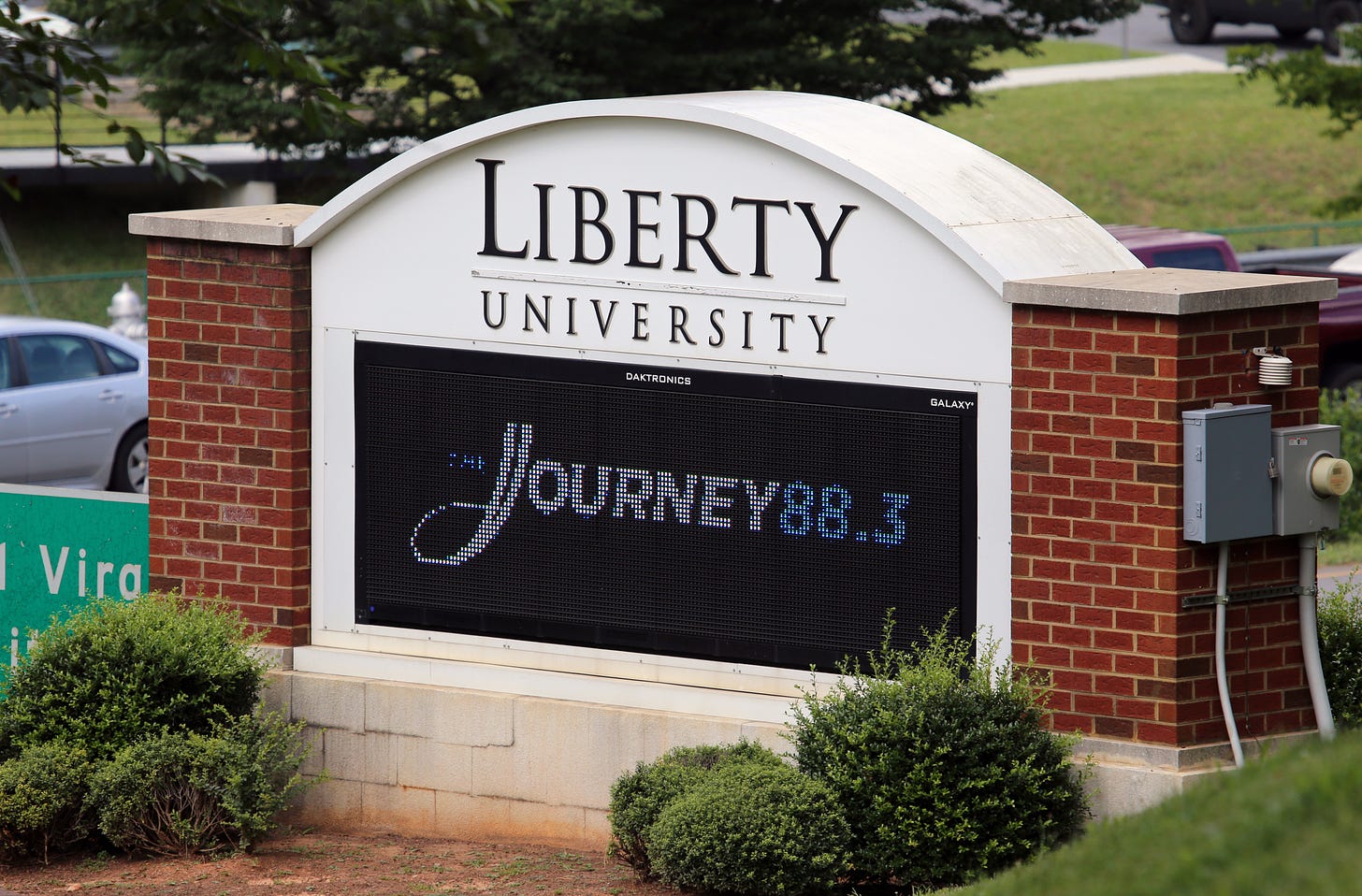The Ghost of Jerry Falwell: Not Dead Enough
How the Moral Majority’s Founding Father Resurrected the Confederacy for the 21st Century
This is, after all, a philosophy blog.
But today we need to exorcise a ghost. The specter of Jerry Falwell Sr. haunts American politics forty-three years after he founded the Moral Majority, and his toxic legacy has metastasized into something far more dangerous than even his critics imagined. The straight line from Falwell’s cynical weaponization of Christianity to Trump’s authoritarian nationalism isn’t coincidence—it’s completion.
Jerry Falwell didn’t die in 2007. He just learned to possess other bodies.
The man who turned the gospel into a weapon against the very people Jesus spent his life defending, who corrupted the language of moral authority to serve political power, who taught an entire generation of evangelicals that tribal loyalty mattered more than spiritual integrity—his work lives on in every MAGA rally, every Christian nationalist manifesto, every attempt to turn America into a theocratic playground for authoritarian grifters.
It’s time to say what needs saying: Jerry Falwell resurrected the spirit of the Confederacy for the 21st century, wrapped it in biblical language, and convinced millions of Americans that their hatred was holy.
Fuck you, Jerry. And fuck your legacy too.
The Confederacy Never Died—It Just Learned to Speak Christian
Understanding Jerry Falwell requires understanding what he actually accomplished, which was far more sophisticated and far more destructive than simple religious hucksterism. Falwell solved a problem that had been plaguing white supremacist movements since the Civil Rights Act: how do you maintain racial hierarchy when explicit racism becomes socially unacceptable?
The answer was theological camouflage.
Falwell understood that the Lost Cause mythology needed updating for the post-civil rights era. You couldn’t openly defend white supremacy anymore, but you could defend “traditional values.” You couldn’t explicitly argue for racial hierarchy, but you could talk about “law and order” and “biblical family structure.” You couldn’t promote Confederate ideology directly, but you could wrap it in scriptural language and call it moral revival.
The genius was using Christianity as a delivery system for Confederate nostalgia. Instead of “states’ rights,” you had “religious liberty.” Instead of “racial purity,” you had “biblical family values.” Instead of “the South shall rise again,” you had “taking back America for God.”
But strip away the theological packaging, and the underlying spirit was identical: the belief that a righteous minority has the moral authority to impose its vision on an unworthy majority, backed by claims about divine or natural law that conveniently align with existing power structures.
This wasn’t coincidence. Falwell’s Liberty University was founded in Lynchburg, Virginia—a city deeply rooted in Confederate history that was considered as the Confederacy’s final refuge before Lee’s surrender at nearby Appomattox. The symbolism is striking: where the Old South fell, the New South would rise, armed not with muskets but with moral majority rhetoric.
When Falwell spoke of America as a “Christian nation” under assault from secular forces, he was translating Jefferson Davis into evangelical language. When he defended “traditional family values” against civil rights advances, he was repackaging antebellum nostalgia as biblical truth. When he mobilized white evangelicals around the fiction that they were an oppressed minority in their own country, he was channeling the Confederate sense of righteous grievance into political action.
The Confederate flag came down from state capitols, but Confederate ideology simply moved into church sanctuaries.




